Monthly Archives: January 2017
Marine Patrol seeks permission to bug boats that fish for “bugs”
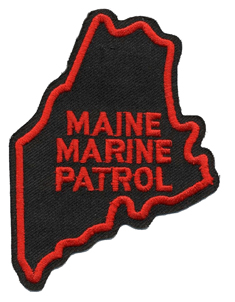 Last November, the Marine Patrol charged a Spruce Head lobsterman with fishing 156 lobster traps more than the 800 he was authorized to fish. In October, a trap war between fisherman from Lobster Management Zones B and C reached such epic proportions that the state offered a $15,000 reward for information that could help the Marine Patrol with its investigation of incidents that, according to the Department of Marine Resources, had generated considerably more than $350,000 in lost gear. Zone B extends from Schoodic Point to Newbury Neck in Blue Hill Bay while Zone C stretches from Newbury Neck to Cape Rosier. Long before all that excitement came to public attention, DMR last April proposed legislation that would significantly expand the Marine Patrol’s authority to place electronic surveillance devices on commercial fishing boats surreptitiously, without first obtaining a search warrant from a judge or permission from the boat owner. Read the story here 08:42
Last November, the Marine Patrol charged a Spruce Head lobsterman with fishing 156 lobster traps more than the 800 he was authorized to fish. In October, a trap war between fisherman from Lobster Management Zones B and C reached such epic proportions that the state offered a $15,000 reward for information that could help the Marine Patrol with its investigation of incidents that, according to the Department of Marine Resources, had generated considerably more than $350,000 in lost gear. Zone B extends from Schoodic Point to Newbury Neck in Blue Hill Bay while Zone C stretches from Newbury Neck to Cape Rosier. Long before all that excitement came to public attention, DMR last April proposed legislation that would significantly expand the Marine Patrol’s authority to place electronic surveillance devices on commercial fishing boats surreptitiously, without first obtaining a search warrant from a judge or permission from the boat owner. Read the story here 08:42
The Rise and Fall of a Shrimp Biologist
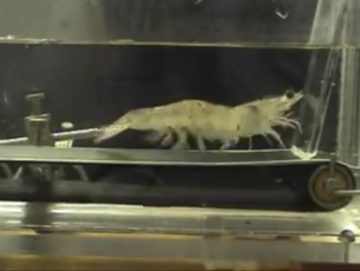 Yes, I am a marine biologist. But, before you get all doe-eyed, thinking about swimming with dolphins, or saving the whales, I need to explain that there are two very different kinds of marine biologists in the world, one kind triumphantly leaps off of boats wearing stylish wetsuits to study highly intelligent and beautiful marine mammals, these are the dolphin huggers, while the other kind of marine biologist studies the less popular animals in the ocean, things like worms and slugs, or in my case, shrimp. And to be precise, I don’t study just any shrimp. My career choice was to study sick shrimp, shrimp laden with bacteria. While my dolphin-hugging colleagues are inundated with students—all of which, by the way, look remarkable in scant swimwear—they travel the world giving invited seminars to large enthusiastic audiences and seem to get research support with the flick of pen, I on the other hand am basically the proctologist of the marine biology world in terms of popularity. And like all proctologists, my expertise is entirely unappreciated. Read the article here 19:57
Yes, I am a marine biologist. But, before you get all doe-eyed, thinking about swimming with dolphins, or saving the whales, I need to explain that there are two very different kinds of marine biologists in the world, one kind triumphantly leaps off of boats wearing stylish wetsuits to study highly intelligent and beautiful marine mammals, these are the dolphin huggers, while the other kind of marine biologist studies the less popular animals in the ocean, things like worms and slugs, or in my case, shrimp. And to be precise, I don’t study just any shrimp. My career choice was to study sick shrimp, shrimp laden with bacteria. While my dolphin-hugging colleagues are inundated with students—all of which, by the way, look remarkable in scant swimwear—they travel the world giving invited seminars to large enthusiastic audiences and seem to get research support with the flick of pen, I on the other hand am basically the proctologist of the marine biology world in terms of popularity. And like all proctologists, my expertise is entirely unappreciated. Read the article here 19:57
Coast Guard responds to fishing vessel taking on water 50 miles south of Grand Isle
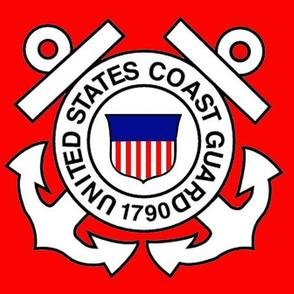 The Coast Guard is responding to a vessel taking on water approximately 50 miles south of Grand Isle, Louisiana, Monday. Watchstanders at Coast Guard Sector New Orleans received a report at 1:58 a.m. of an 85-foot fishing vessel (F/V Ocean 1)with three people aboard taking on water approximately 50 miles south of Grand Isle. Watchstanders at Sector New Orleans directed the launch of a 45-foot Response Boat-Medium crew from Coast Guard Station Grand Isle, an MH-65 Dolphin helicopter aircrew from Coast Guard Air Station New Orleans, and an HC-144 Ocean Sentry airplane crew from Coast Guard Aviation Training Center in Mobile, Alabama. The helicopter aircrew arrived on scene at 3:36 a.m. and lowered a de-watering pump and a rescue swimmer. The 45-foot response boat transferred coast guard personnel and pumps to the vessel. The HC-144 Ocean Sentry crew, the 45 foot response boat, and the offshore supply vessel Joanne Morrison are currently on scene. Link 16:04
The Coast Guard is responding to a vessel taking on water approximately 50 miles south of Grand Isle, Louisiana, Monday. Watchstanders at Coast Guard Sector New Orleans received a report at 1:58 a.m. of an 85-foot fishing vessel (F/V Ocean 1)with three people aboard taking on water approximately 50 miles south of Grand Isle. Watchstanders at Sector New Orleans directed the launch of a 45-foot Response Boat-Medium crew from Coast Guard Station Grand Isle, an MH-65 Dolphin helicopter aircrew from Coast Guard Air Station New Orleans, and an HC-144 Ocean Sentry airplane crew from Coast Guard Aviation Training Center in Mobile, Alabama. The helicopter aircrew arrived on scene at 3:36 a.m. and lowered a de-watering pump and a rescue swimmer. The 45-foot response boat transferred coast guard personnel and pumps to the vessel. The HC-144 Ocean Sentry crew, the 45 foot response boat, and the offshore supply vessel Joanne Morrison are currently on scene. Link 16:04
FFAW-Unifor Statement on FISH-NL Application to Labour Board
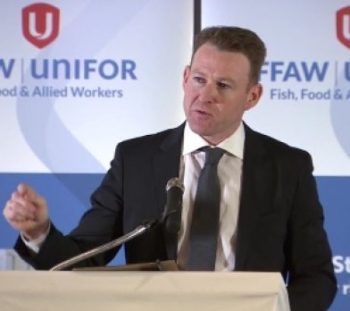 Today the exact number of cards submitted by FISH-NL in an application to the Labour Relations Board was made public. As FFAW-Unifor anticipated, Cleary did not obtain nearly enough of the support required to represent the bargaining unit “Ryan Cleary and his group have taken advantage of a time of transition in our fishery and are preying on harvesters who are experiencing financial hardship as a result of that transition by making promises without any plan to back them up,” said Keith Sullivan, President of the Fish, Food and Allied Workers Union. “The numbers are now public and it is clear FISH-NL does not have adequate support.” Read the Press Release here 13:44
Today the exact number of cards submitted by FISH-NL in an application to the Labour Relations Board was made public. As FFAW-Unifor anticipated, Cleary did not obtain nearly enough of the support required to represent the bargaining unit “Ryan Cleary and his group have taken advantage of a time of transition in our fishery and are preying on harvesters who are experiencing financial hardship as a result of that transition by making promises without any plan to back them up,” said Keith Sullivan, President of the Fish, Food and Allied Workers Union. “The numbers are now public and it is clear FISH-NL does not have adequate support.” Read the Press Release here 13:44
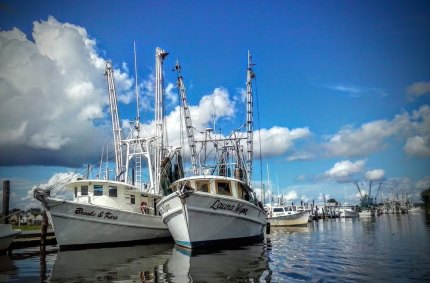
Truths About Trawl Life – Fisheries advocates expose truths and misconceptions regarding drastic NC shrimp industry rule changes
In the name of environmental stewardship, a non-profit group based in Raleigh and Charlotte has aimed their fire at the state’s commercial fishermen. Stakeholders say this effort could ultimately shut down a historic industry. According to their website mission statement, NC Wildlife Federation (NCWF) is a 501c3 non-profit organization that “has worked for all wildlife and habitat bringing together citizens, outdoor enthusiasts, hunters and anglers, government and industry to protect North Carolina’s natural resources.” Their latest conservation effort is aimed towards a fishery that brings one of our state’s highest prized commodities to the table – fresh NC shrimp. Contrary to their mission statement, the NCWF has not brought together citizens in this effort, nor have they based their claims on industry facts. Calling the trawling industry “killers,” they’ve petitioned the Marine Fisheries Commission (MFC) to drastically change rules for the fishery. Folks in the business of fresh seafood say these cuts will take fresh NC shrimp off the table for good. “Basically, the impact of this petition will be to shut down the NC shrimp industry,” said Jerry Schill, president of NC Fisheries Association. Fisheries advocates with NC Catch have compiled facts, complete with sources cited, to educate the public on some of the misrepresentation. This information, along with a host of benefits that come with enjoying fresh, local seafood can be found on their website, nccatch.org. Read the article here 11:40
Catch share threat is back
 As we enter 2017, the biggest threat to commercial and recreational fishermen in the South Atlantic is back: private ownership of the snapper-grouper fishery through a catch share program. Fishery stakeholders have year after year overwhelmingly rejected any form of catch shares. Most recently, 97 percent of the comments on the South Atlantic Fishery Management Council’s long-range snapper-grouper management plan opposed catch shares — a plan the council promised would be “stakeholder-driven.” Yet, SAFMC Vice Chair Charlie Phillips has revealed that he, SAFMC member Chris Conklin and former SAFMC member Jack Cox, all commercial snapper-grouper fleet owners and dealers, are leading an effort to get a voluntary “pilot” catch share program in place this year using an “Exempted Fishing Permit,” which is a back door way to avoid the normal fishery regulation approval process. In a recent article in the Charleston, SC Post & Courier, Vice Chair Phillips touts that the permit would “allow them to catch all year.” The article also reveals that the Seafood Harvesters of America, which has been funded with over $300,000 from the radical Environmental Defense Fund, is supporting the EFP application. The Seafood Harvesters represent some of the biggest catch share owners in the nation. Read the post here 11:06
As we enter 2017, the biggest threat to commercial and recreational fishermen in the South Atlantic is back: private ownership of the snapper-grouper fishery through a catch share program. Fishery stakeholders have year after year overwhelmingly rejected any form of catch shares. Most recently, 97 percent of the comments on the South Atlantic Fishery Management Council’s long-range snapper-grouper management plan opposed catch shares — a plan the council promised would be “stakeholder-driven.” Yet, SAFMC Vice Chair Charlie Phillips has revealed that he, SAFMC member Chris Conklin and former SAFMC member Jack Cox, all commercial snapper-grouper fleet owners and dealers, are leading an effort to get a voluntary “pilot” catch share program in place this year using an “Exempted Fishing Permit,” which is a back door way to avoid the normal fishery regulation approval process. In a recent article in the Charleston, SC Post & Courier, Vice Chair Phillips touts that the permit would “allow them to catch all year.” The article also reveals that the Seafood Harvesters of America, which has been funded with over $300,000 from the radical Environmental Defense Fund, is supporting the EFP application. The Seafood Harvesters represent some of the biggest catch share owners in the nation. Read the post here 11:06

A ‘Gentle Giant’: Shelburne fisherman dies at sea
A fisherman who fell from a fishing boat into the Atlantic Ocean off Cape Sable late Saturday afternoon has died. Shelburne resident Jim Buchanan, 44, was described by friend Krista Peterson on social media as “a gentle man gone too soon and missed by many.” His friends and family called him “the Gentle Giant” or “Big Jim.” The Joint Rescue Coordination Centre in Halifax said Buchanan, on board the Secret Sea, was laying lobster traps about 25 nautical miles south east of Cape Sable when he went overboard around 5 p.m. Saturday afternoon. The JRCC asked the Canadian Coast Guard to assist, and they brought him into West Head on Cape Sable. Harbourmaster Dick Crowell said an ambulance was there to provide medical assistance, but Buchanan had already died. The boat is owned by Harding Lobster Ltd. of Shelburne. Captain Audie Harding said he and his crew are still struggling to understand what happened to their friend. Read the story here 09:07
FISH-NL releases details of certification application — 2,372 harvesters sign membership cards, well over 50 per cent required
 The Federation of Independent Sea Harvesters of Newfoundland and Labrador (FISH-NL) is today releasing details of its certification application filed with the Labour Relations Board on Dec. 30th, including the total number of fish harvesters signed on. “A total of 2,372 harvesters from more than 300 Newfoundland and Labrador communities signed FISH-NL cards over our two-month membership drive,” says Ryan Cleary, president of FISH-NL. “From all indications that number represents well over 50 per cent of all inshore fish harvesters.” Read the Press release, click here 08:04
The Federation of Independent Sea Harvesters of Newfoundland and Labrador (FISH-NL) is today releasing details of its certification application filed with the Labour Relations Board on Dec. 30th, including the total number of fish harvesters signed on. “A total of 2,372 harvesters from more than 300 Newfoundland and Labrador communities signed FISH-NL cards over our two-month membership drive,” says Ryan Cleary, president of FISH-NL. “From all indications that number represents well over 50 per cent of all inshore fish harvesters.” Read the Press release, click here 08:04
Upstart fishing union says more than 2,300 fish harvesters have joined Click here 08:56
Coast Guard assists 6 aboard disabled fishing vessel off Long Beach, Wash.
The Coast Guard assisted a commercial fishing vessel safely back to shore after the crew of the vessel reported taking on water approximately 4 miles offshore of Long Beach, Washington, Sunday afternoon. The crew of the Tracer was uninjured and the vessel was safely moored in the Port of Ilwaco, Washington. Watchstanders at Coast Guard Sector Columbia River Command Center received a mayday call via satellite phone at 11:35 a.m. The original report was a loss of engine power and taking on water with six people on board. An aircrew aboard anMH-60 Jayhawk helicopter was diverted to assist but was unable to communicate with the Tracer’s crew, so they passed a radio to the crew. The aircrew remained on scene until a crew aboard a47-foot MLB from Station Cape Disappointment arrived on scene. The MLB’s crew delivered a dewatering pump and assisted the Tracer in regaining engine power and then helped the crew control the flooding. The vessel’s crew started back toward Ilwaco with a precautionary escort from the MLB crew once it was safe to transit. The sea conditions encountered on scene were 5-foot swells and 30 MPH winds. Link 20:07
safely back to shore after the crew of the vessel reported taking on water approximately 4 miles offshore of Long Beach, Washington, Sunday afternoon. The crew of the Tracer was uninjured and the vessel was safely moored in the Port of Ilwaco, Washington. Watchstanders at Coast Guard Sector Columbia River Command Center received a mayday call via satellite phone at 11:35 a.m. The original report was a loss of engine power and taking on water with six people on board. An aircrew aboard anMH-60 Jayhawk helicopter was diverted to assist but was unable to communicate with the Tracer’s crew, so they passed a radio to the crew. The aircrew remained on scene until a crew aboard a47-foot MLB from Station Cape Disappointment arrived on scene. The MLB’s crew delivered a dewatering pump and assisted the Tracer in regaining engine power and then helped the crew control the flooding. The vessel’s crew started back toward Ilwaco with a precautionary escort from the MLB crew once it was safe to transit. The sea conditions encountered on scene were 5-foot swells and 30 MPH winds. Link 20:07
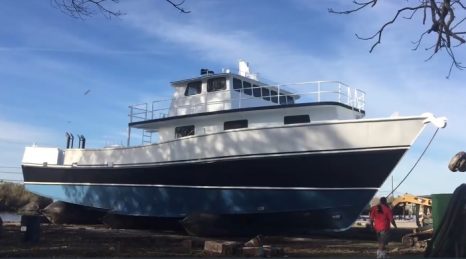
Louisiana: Launch of new shrimp boat a testament of faith
Some people have lost faith in the traditions and possibilities of the shrimp industry here in the Bayou Region. But Chad and Angela Portier and the rest of their family are not among those. They proved their faith – in more than one way – with the Tuesday launch of the Louisiana shrimp fleet’s newest addition, the 72-foot trawler they named “Jesus Lives.” The boat rolled into the waters of Bayou Petit Caillou with a dignified slide, a testament to the family’s tradition and tenacity. Chad Portier learned to build boats from his late father, Russell, whose name on the bayou is legendary. During the project Chad taught his sons, Chad Jr., 15, and Jenson Engebretson, 19, how to build alongside him. It was for the boys, the veteran shrimper said, that the project happened at all. Watch the launch video, and read the story here 15:20
Shelburne lobster fisherman dies after falling overboard
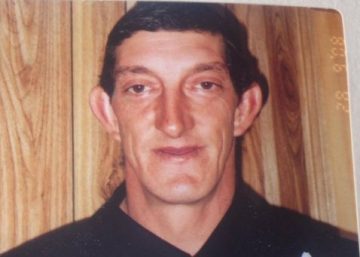 A 44-year-old Nova Scotia lobster fisherman died Saturday after he fell overboard when the crew was setting traps. Jimmy Buchanan was working about 50 kilometres southeast of Cape Sable Island. RCMP received a call around 6 p.m. Saturday, about three hours after the incident took place. They investigated the incident and deemed it non-suspicious, said Cpl. Andrew Joyce. As it was a workplace death, the case is now being handled by the provincial Labour Department. Read the story here 14:40
A 44-year-old Nova Scotia lobster fisherman died Saturday after he fell overboard when the crew was setting traps. Jimmy Buchanan was working about 50 kilometres southeast of Cape Sable Island. RCMP received a call around 6 p.m. Saturday, about three hours after the incident took place. They investigated the incident and deemed it non-suspicious, said Cpl. Andrew Joyce. As it was a workplace death, the case is now being handled by the provincial Labour Department. Read the story here 14:40
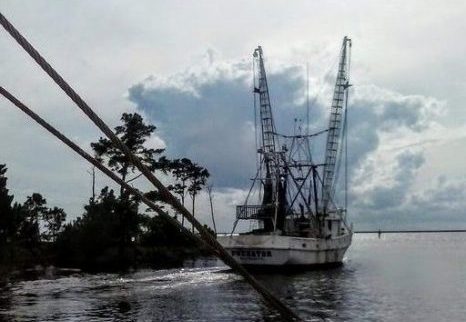
Keep NC seafood (especially SHRIMP) on our tables online petition gains support
An Ocracoke resident has started an online petition to oppose a request from the N.C. Wildlife Federation before the N.C. Marine Fisheries Commission for new rules that may put more restrictions on shrimp trawling. These petitions have come out while a fishing industry work group is about to receive information on bycatch reducing gear tests, and set priorities for additional tests this year. Megan Spencer of Ocracoke began a petition at the website change.org, a site dedicated to hosting petitions of all sorts, in early December. This petition, titled “Keep N.C. seafood (especially shrimp) on our tables,” calls for the MFC to deny a petition for rulemaking from the NCWF that, if granted, would designate all coastal fishing waters in the state not otherwise designated as nursery areas as special secondary nursery areas. As of Saturday, Ms. Spencer’s petition has received 1,427 signatures. In her petition, she says that local businesses, fishing families and coastal communities depend on catches from trawlers – namely shrimp – as a source of economic commerce and locally-grown, organic protein. Read the story here To read and sign the “Keep NC seafood (especially SHRIMP) on our tables”, Click here 12:26
Carapace Size Increase – Craig Avery: PEIFA follows democratic vote
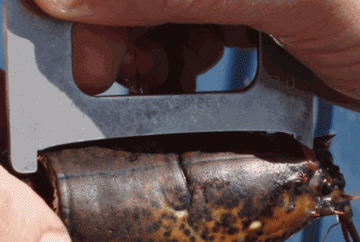 There seems to be inconsistency in Egmont MP Morrissey’s approach to what constitutes due process. In one case he is advocating that a vote should have been taken before any carapace increase was decided upon in LFA 25, but challenges the recent votes that did not support a carapace size increase in LFA 24 and 26A. Mr. Morrissey states there should have been stronger leadership in favour of an increase. The vote process was led by the respective Lobster Advisory Chairs and included open information meetings, detailed mail-outs to all fishers in these areas and secret ballot votes. This is a valid democratic process and the results reflect the wishes of the “constituents” in these fishing communities. Read the rest here 11:01
There seems to be inconsistency in Egmont MP Morrissey’s approach to what constitutes due process. In one case he is advocating that a vote should have been taken before any carapace increase was decided upon in LFA 25, but challenges the recent votes that did not support a carapace size increase in LFA 24 and 26A. Mr. Morrissey states there should have been stronger leadership in favour of an increase. The vote process was led by the respective Lobster Advisory Chairs and included open information meetings, detailed mail-outs to all fishers in these areas and secret ballot votes. This is a valid democratic process and the results reflect the wishes of the “constituents” in these fishing communities. Read the rest here 11:01
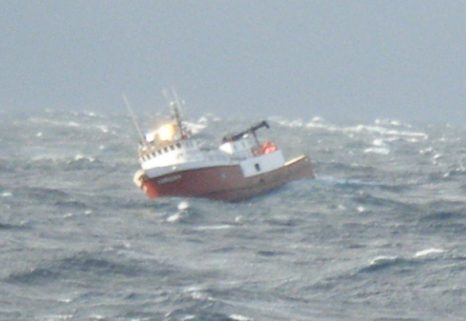
UPDATE: Tugs tow Coast Guard cutter, disabled fishing vessel back to Kodiak
The commercial tug Anna-T took the Coast Guard Cutter SPAR into tow 230 miles southeast of Kodiak Saturday afternoon and is in transit to Kodiak. The Coast Guard Cutter Hickory, a 225-foot seagoing buoytender home ported in Homer, arrived on scene and will escort the Anna-T and SPAR during the transit to Kodiak. The commercial tug Chahunta is scheduled to take the fishing vessel Lady Gudny into tow later this evening. Initially, the Lady Gudny experienced fuel filter issues at sea after midnight Thursday and became disabled and adrift. The SPAR was directed to get underway to provide assistance. As the SPAR prepared to bring the Lady Gudny into tow Friday afternoon the towline separated, which entangled the SPAR’s propellers and caused the cutter to become disabled. The four people aboard the Lady Gudny were airlifted by an Air Station Kodiak MH-60T aircrew and safely transported to Kodiak with no medical concerns, Friday afternoon. Link 10:29
Coast Guard, local agencies rescue fisherman near MacMillan Pier in Provincetown
 A Coast Guard 47-foot Motor Lifeboat crew along with the Provincetown Harbormaster and Provincetown Police and Fire Departments rescued a fisherman after he fell overboard Saturday night near MacMillan Pier in Provincetown. Coast Guard watchstanders received a mayday call from the fishing vessel Resolute at around 9:30 pm Saturday stating a crewmember had fell overboard near the pier. The crew of the Resolute threw the man a life ring, which had a strobe light attached to it, but were unable to recover him. A 47-foot Motor Lifeboat crew from Coast Guard Station Provincetown arrived on scene at around 9:45 pm, along with the Provincetown Harbor Master. “The weather was nasty,” said Chief Petty Officer James Zerinskas, the coxswain of the 47-foot Motor Lifeboat. “The wind was around 28 knots, visibility was only a quarter mile, and air temperature was 27 degrees at the time.” Despite the conditions, the harbormaster was able to locate the fisherman by seeing the flashing strobe attached to the life ring. Two Coast Guard crewmembers quickly transferred over to the harbormaster’s boat and assisted in pulling the man from the 39-degree water. The man was immediately moved to Provincetown Emergency Medical Services personnel to be treated for hypothermia. “He’s alive because of the life ring and strobe and the fast response of the Provincetown crews,” said Scott Backholm, the command duty officer at Sector Southeastern New England’s command center. “This demonstrates the importance of having a life ring with an operable strobe light.” Link 09:59
A Coast Guard 47-foot Motor Lifeboat crew along with the Provincetown Harbormaster and Provincetown Police and Fire Departments rescued a fisherman after he fell overboard Saturday night near MacMillan Pier in Provincetown. Coast Guard watchstanders received a mayday call from the fishing vessel Resolute at around 9:30 pm Saturday stating a crewmember had fell overboard near the pier. The crew of the Resolute threw the man a life ring, which had a strobe light attached to it, but were unable to recover him. A 47-foot Motor Lifeboat crew from Coast Guard Station Provincetown arrived on scene at around 9:45 pm, along with the Provincetown Harbor Master. “The weather was nasty,” said Chief Petty Officer James Zerinskas, the coxswain of the 47-foot Motor Lifeboat. “The wind was around 28 knots, visibility was only a quarter mile, and air temperature was 27 degrees at the time.” Despite the conditions, the harbormaster was able to locate the fisherman by seeing the flashing strobe attached to the life ring. Two Coast Guard crewmembers quickly transferred over to the harbormaster’s boat and assisted in pulling the man from the 39-degree water. The man was immediately moved to Provincetown Emergency Medical Services personnel to be treated for hypothermia. “He’s alive because of the life ring and strobe and the fast response of the Provincetown crews,” said Scott Backholm, the command duty officer at Sector Southeastern New England’s command center. “This demonstrates the importance of having a life ring with an operable strobe light.” Link 09:59
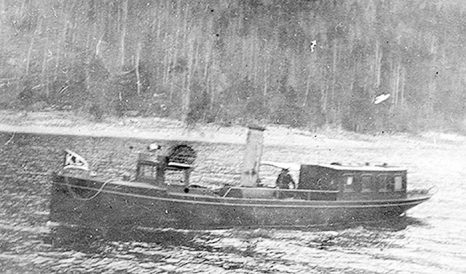
Does anyone remember the Wenonah?
The Wenonah was a wooden fishing trawler with an interesting past which included a stint in the Campbell River area in the mid 1950s. She was built in Dartmouth, England, in 1905, by Simpson, Strickland & Co., one of the Country’s foremost builders of steam yachts and launches of the day. She was 43 feet long with a beam of 7 feet. Her polished mahogany hull was double-planked, with oil canvas in between the planks and her steam bent ribs were fashioned from American elm. She had a small trunk cabin, which housed closets, storage lockers, benches and a lavatory, and there was a small glass-enclosed steering cockpit forward, all finished in varnished mahogany. Her machinery included a fire-tube boiler and a quadruple expansion steam engine. In the early 1930s, she was used for salvaging and during the 1940s she was converted to a fishing trawler and taken to Port Alberni. Read the story here 09:23
Lobster prices high as catch drops and China imports climb
 Lobster lovers are used to adjusting to high prices, but this winter, they’re shelling out even more for the cherished crustaceans because of a lack of catch off of New England and Canada and heavy exports to China. Winter is typically a slow season for U.S. lobster fishermen and an active one off Atlantic Canada. But catch is slow in both countries this year, in part because of bad weather, industry sources said. And the winter months are also an important time for exports to lobster-crazy China, which celebrates its New Year holiday Jan. 28. It’s increasingly popular to celebrate the Chinese New Year with American lobster. That’s causing demand at a time when supply is low. Read the story here 17:54
Lobster lovers are used to adjusting to high prices, but this winter, they’re shelling out even more for the cherished crustaceans because of a lack of catch off of New England and Canada and heavy exports to China. Winter is typically a slow season for U.S. lobster fishermen and an active one off Atlantic Canada. But catch is slow in both countries this year, in part because of bad weather, industry sources said. And the winter months are also an important time for exports to lobster-crazy China, which celebrates its New Year holiday Jan. 28. It’s increasingly popular to celebrate the Chinese New Year with American lobster. That’s causing demand at a time when supply is low. Read the story here 17:54
Coast Guard, crew of the F/V Sea Ballad rescue 5 fishermen near Columbia River
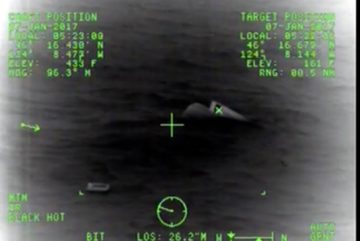 The Coast Guard and a good Samaritan commercial fishing crew rescued five people from the water after the fishing vessel Star King, a 55-foot stern trawler homeported in Astoria, capsized and sank near the entrance to the Columbia River early Saturday morning. All five fishermen were pulled from the water by the crew of the fishing vessel Sea Ballad and were transferred to the Coast Guard 47-foot Motor Life Boat crew, from Station Cape Disappointment, who transported them to the station in Ilwaco, Wash., where they did not need medical attention. Watchstanders at the Sector Columbia River command center received the first mayday calls from the Star King via VHF-FM radio channel 16 at 4:31 a.m. All five fishermen were accounted for by 5:10 a.m. The fishing trawler’s captain first reported they were taking on water and listing hard to starboard before suddenly capsizing and sending all five crewmembers into the water. “The quick, selfless actions taken by the crew of the good Samaritan crab vessel Sea Ballad and the fact that the Star King’s crew put on survival suits saved five lives today,” said Chief Petty Officer Justin Urbano, command duty officer, Sector Columbia River. “The Coast Guard had a quick response, but these fishermen were out of the water before we arrived on scene.” The sunken Star King is not blocking navigation, but is a hazard to navigation and all mariners need to be on the lookout if they transit the area. Link Watch video here 12:23
The Coast Guard and a good Samaritan commercial fishing crew rescued five people from the water after the fishing vessel Star King, a 55-foot stern trawler homeported in Astoria, capsized and sank near the entrance to the Columbia River early Saturday morning. All five fishermen were pulled from the water by the crew of the fishing vessel Sea Ballad and were transferred to the Coast Guard 47-foot Motor Life Boat crew, from Station Cape Disappointment, who transported them to the station in Ilwaco, Wash., where they did not need medical attention. Watchstanders at the Sector Columbia River command center received the first mayday calls from the Star King via VHF-FM radio channel 16 at 4:31 a.m. All five fishermen were accounted for by 5:10 a.m. The fishing trawler’s captain first reported they were taking on water and listing hard to starboard before suddenly capsizing and sending all five crewmembers into the water. “The quick, selfless actions taken by the crew of the good Samaritan crab vessel Sea Ballad and the fact that the Star King’s crew put on survival suits saved five lives today,” said Chief Petty Officer Justin Urbano, command duty officer, Sector Columbia River. “The Coast Guard had a quick response, but these fishermen were out of the water before we arrived on scene.” The sunken Star King is not blocking navigation, but is a hazard to navigation and all mariners need to be on the lookout if they transit the area. Link Watch video here 12:23
Letter: Fish harvesters deserve better – Jim Radford, St. John’s
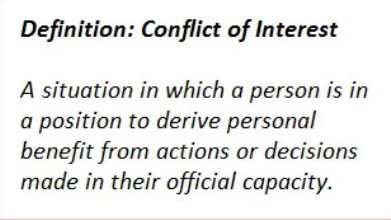 Fish harvesters: are they entrepreneurs, employees or employers? They belong to the Fish, Food and Allied Workers Union (FFAW), which looks to me like an employees union. Now they want to form their own new union; that puzzles me because the title “union” has been captured by governments and organized groups of employees to act in negotiations between employees and employers. Why does it matter if they call FISH-NL a union, or something different? I think it is a matter of focus. Back to the first question, are they entrepreneurs? As a retired entrepreneur, I have always thought that an entrepreneur is a person or entity that has investment at risk for entrepreneurial gain. That is the bedrock of a free enterprise system. Great letter. Read the rest here 11:38
Fish harvesters: are they entrepreneurs, employees or employers? They belong to the Fish, Food and Allied Workers Union (FFAW), which looks to me like an employees union. Now they want to form their own new union; that puzzles me because the title “union” has been captured by governments and organized groups of employees to act in negotiations between employees and employers. Why does it matter if they call FISH-NL a union, or something different? I think it is a matter of focus. Back to the first question, are they entrepreneurs? As a retired entrepreneur, I have always thought that an entrepreneur is a person or entity that has investment at risk for entrepreneurial gain. That is the bedrock of a free enterprise system. Great letter. Read the rest here 11:38
Feds Take Controversial Mid and South Atlantic Seismic Air Gun Testing Off Table
 Federal officials announced on Friday a controversial plan to allow dangerous seismic air gun testing in a vast section off the mid-Atlantic coast including an area as close as 20 miles off the coast of Ocean City has been removed from consideration. With a proposal to lease a vast area totaling roughly three million acres off the mid-Atlantic coast to offshore drilling for oil and natural gas reserves already taken off the table last spring, the federal Bureau of Ocean Energy Management (BOEM) announced on Friday a companion plan to open the same area to seismic airgun testing has been denied. Seismic airgun testing is used to determine what oil and natural gas reserves lie beneath the ocean floor. However, once the plan to allow offshore drilling off the mid-Atlantic coast was removed from consideration, at least for the next five years, BOEM officials determined there was no good reason to allow potentially dangerous seismic testing in the same areas off the mid-Atlantic coast including Ocean City and Assateague, for example. Read the story here 10:12
Federal officials announced on Friday a controversial plan to allow dangerous seismic air gun testing in a vast section off the mid-Atlantic coast including an area as close as 20 miles off the coast of Ocean City has been removed from consideration. With a proposal to lease a vast area totaling roughly three million acres off the mid-Atlantic coast to offshore drilling for oil and natural gas reserves already taken off the table last spring, the federal Bureau of Ocean Energy Management (BOEM) announced on Friday a companion plan to open the same area to seismic airgun testing has been denied. Seismic airgun testing is used to determine what oil and natural gas reserves lie beneath the ocean floor. However, once the plan to allow offshore drilling off the mid-Atlantic coast was removed from consideration, at least for the next five years, BOEM officials determined there was no good reason to allow potentially dangerous seismic testing in the same areas off the mid-Atlantic coast including Ocean City and Assateague, for example. Read the story here 10:12
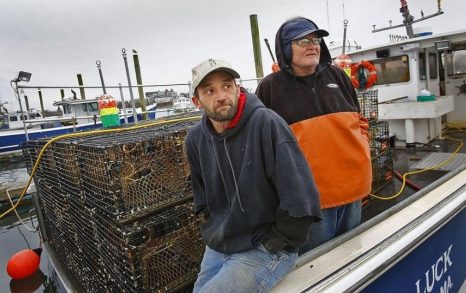
South Shore Lobstermen brace for third year of fishing ban
It’s a classic New England scene, colorful lobster traps stacked up along a dock. But for fishermen in South Shore lobster ports, those grounded traps are a symbol of hard times ahead. Aban that keeps most of their gear out of the water for the winter is entering its third year, despite arguments that it causes them unfair economic hardship. “If it made sense, that would be one thing,” Irvine Nash, a lobsterman for 48 years, said as he stood on a dock in Green Harbor. “But it don’t,” he said. Behind him, fishermen were pulling traps out of the water and loading them on trucks. They will sit empty in yards and garages until May, when the government lifts the ban. Under a recent rule from the National Marine Fisheries Service, all traps from outer Cape Cod to Cape Cod Bay and parts of Massachusetts Bay must be out of the water by Feb. 1. That’s an area just under 3,000 square nautical miles. The federal agency first imposed the ban in 2015, to decrease the likelihood of endangered North Atlantic right whales, which come to Cape Cod Bay every winter, from entangling themselves in lobster lines. Read the story here 08:36
West Coast Crab Strike is Over
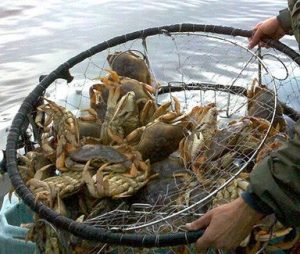 Oregon crab fishermen Friday came to an agreement with processors, ending an 11-day strike over the cost companies will pay this season for their harvest. In December, processors — primarily Pacific Choice Seafood, the largest on the West Coast — agreed to $3 a pound, but on Dec. 26 backed off that price, offering $2.75. At that point, crab fishermen tied up their boats and refused to fish. This week’s negotiations resulted in a $2.875 price — right down the middle, said Brookings fisherman Bernie Lindley. “Happy? I don’t know,” Lindley said of the final price. “In a successful negotiation, nobody’s happy and nobody’s pissed. For me, personally, I wish it would’ve been resolved more fairly for the fishermen, but we’re back to work, and so be it.” Read the story here, 08:10
Oregon crab fishermen Friday came to an agreement with processors, ending an 11-day strike over the cost companies will pay this season for their harvest. In December, processors — primarily Pacific Choice Seafood, the largest on the West Coast — agreed to $3 a pound, but on Dec. 26 backed off that price, offering $2.75. At that point, crab fishermen tied up their boats and refused to fish. This week’s negotiations resulted in a $2.875 price — right down the middle, said Brookings fisherman Bernie Lindley. “Happy? I don’t know,” Lindley said of the final price. “In a successful negotiation, nobody’s happy and nobody’s pissed. For me, personally, I wish it would’ve been resolved more fairly for the fishermen, but we’re back to work, and so be it.” Read the story here, 08:10
Whither the crab? Monterey Bay pulls empty pots Click here
Crab strike ends; crabbers, Pacific Group agree to $2.875 per pound price Click here
‘Today is a Good Result’: Dan Occhipinti, general counsel at Pacific Seafood Group Click here

Coast Guard rescues 4 from disabled fishing vessel 230 miles off Kodiak
The Coast Guard rescued four people from a disabled fishing vessel in heavy seas 230 miles east-southeast of Kodiak, Friday. A Coast Guard Air Station Kodiak MH-60T Jayhawk crew hoisted the four people from the Lady Gudny and transported them to Air Station Kodiak in good health. The Coast Guard Cutter SPAR, a 225-foot seagoing buoytender home ported in Kodiak, arrived on scene Friday morning. The SPAR prepared to bring the Lady Gudny into tow when the towline separated, causing the SPAR to become disabled. Watchstanders at the 17th Coast Guard District Command Center received notification from Coast Guard Communications Detachment Kodiak at 1:43 a.m. Thursday that the Lady Gudny experienced fuel filter issues at sea. At approximately 7:30 a.m. Thursday the Lady Gudny became dead in the water 230 miles east of Kodiak after it exhausted their supply of fuel filters and were unable to run the engine. The 17th Coast Guard District directed the launch of the Coast Guard Cutters Hickory and Douglas Munro, and diverted the Coast Guard Cutter Alex Haley to respond and provide assistance to the SPAR. The tug vessels Chahunta and Anna-T are also responding to assist. Weather on scene was reported as 20 to 22-foot seas with 49-mph winds and 9 miles visibility. Link 07:34
Breaking: Crabbers end strike – heading out to drop their pots
 Commercial crab fisherman bargained for a little bit of an increase in the landing prices for their crab. The crab processors agreed to raise their last offer of $2.75/lb up to $2.875/lb and so the crab boats are headed out to sea. Read the story here 19:05
Commercial crab fisherman bargained for a little bit of an increase in the landing prices for their crab. The crab processors agreed to raise their last offer of $2.75/lb up to $2.875/lb and so the crab boats are headed out to sea. Read the story here 19:05
Opinion: State, council fail to help Kodiak trawl fisheries
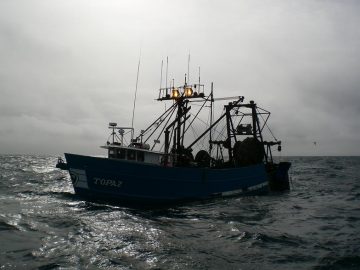 The North Pacific Fishery Management Council has a record for successful fishery management, built on principles known as the Alaska Model. Recently, the council abandoned the Alaska Model and its solid reputation for progressive fishery management. In doing so, the council failed the Gulf of Alaska trawl groundfish fisheries and our community of Kodiak. Led by the state of Alaska, the council voted at its December meeting in Anchorage to “postpone indefinitely” any further work to address the goal of bycatch reduction through a cooperative management program for Gulf of Alaska trawl fisheries. Instead, the Council ended a four-year public process to develop a program to achieve this goal. By their action, the state and the council put politics first, and the health of our fisheries and coastal communities came in dead last. Read the op-ed here 17:46
The North Pacific Fishery Management Council has a record for successful fishery management, built on principles known as the Alaska Model. Recently, the council abandoned the Alaska Model and its solid reputation for progressive fishery management. In doing so, the council failed the Gulf of Alaska trawl groundfish fisheries and our community of Kodiak. Led by the state of Alaska, the council voted at its December meeting in Anchorage to “postpone indefinitely” any further work to address the goal of bycatch reduction through a cooperative management program for Gulf of Alaska trawl fisheries. Instead, the Council ended a four-year public process to develop a program to achieve this goal. By their action, the state and the council put politics first, and the health of our fisheries and coastal communities came in dead last. Read the op-ed here 17:46
Warming trend continues in waters off Atlantic Canada
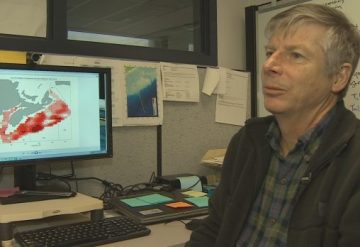 Warmer ocean temperatures off Atlantic Canada continued in 2016, maintaining a trend that started earlier this decade, according to survey results from Canada’s Department of Fisheries and Oceans. On the Scotian Shelf off Nova Scotia, temperatures last year were as high as three degrees above the 30-year average used to establish climatic norms. “It’s not quite the same [record] level of 2012, but it’s getting close to it,” said Dave Hebert, a research scientist with DFO. He added that 2016 was probably the second warmest year on record. Scientists have struggled to explain what is causing the most intriguing aspect of the recent trend: the warming of ocean bottom water, which is not influenced by surface weather events. Hebert said the latest theory is based on model results that see the Gulf Stream moving northward and intersecting with the tail of the Grand Banks. “That is stopping the cold Labrador Sea water from coming around the tail of the Grand Banks,” he said. “That’s where we normally get the cold water that refreshes the [Scotian] Shelf. That hasn’t been happening. Read the story here 16:48
Warmer ocean temperatures off Atlantic Canada continued in 2016, maintaining a trend that started earlier this decade, according to survey results from Canada’s Department of Fisheries and Oceans. On the Scotian Shelf off Nova Scotia, temperatures last year were as high as three degrees above the 30-year average used to establish climatic norms. “It’s not quite the same [record] level of 2012, but it’s getting close to it,” said Dave Hebert, a research scientist with DFO. He added that 2016 was probably the second warmest year on record. Scientists have struggled to explain what is causing the most intriguing aspect of the recent trend: the warming of ocean bottom water, which is not influenced by surface weather events. Hebert said the latest theory is based on model results that see the Gulf Stream moving northward and intersecting with the tail of the Grand Banks. “That is stopping the cold Labrador Sea water from coming around the tail of the Grand Banks,” he said. “That’s where we normally get the cold water that refreshes the [Scotian] Shelf. That hasn’t been happening. Read the story here 16:48
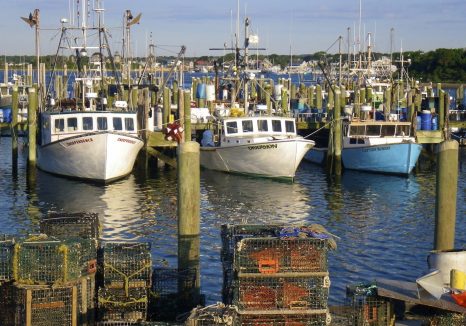
“Fostering a New Generation of RI Fishermen” Fisheries workshop to be held Monday in Wakefield
Not enough young people are entering into Rhode Island’s fisheries. The problem is affecting the state’s commercial fishing industry in a number of ways – from an untrained workforce to an unsure future. An in-depth interview with almost 50 RI fisheries last year identified the low level of participation by young fishermen as one of the most “overriding aspects” of vulnerability in the current industry. On Monday, Jan. 9 starting at 4 p.m., a workshop on the absence of young people in the fishing trade will be held at The Contemporary Theater, 327 Main St., Wakefield. The workshop, entitled “Fostering a New Generation of RI Fishermen” aims to address the problem by collaborating with local young fishermen and examining what other states have done to overcome similar circumstances. Read the story here, and find more info here! 15:35
Man gets harpooned on fishing trip
 A fisherman is lucky to be alive after he was shot in the head with a harpoon during a fishing trip in Brazil. The 27-year-old man — identified in local television reports as Hugo Pereira da Silva — was on a fishing trip with a friend at the Rio Paranaiba dam in Araguari when the 3-foot spear pierced his face on Tuesday, according to officials. “Unfortunately, they were not careful with the positioning, the distance,” Araguari fire department Deputy Lt. Lucenildo Batista Alves told the site. “And the waters of the river in our region are murky, especially in the very dirty rainy season.” The metal shaft — which was just inches away from causing more serious injuries or even death — was removed and the man was released from a hospital Wednesday. Read the story here 14:42
A fisherman is lucky to be alive after he was shot in the head with a harpoon during a fishing trip in Brazil. The 27-year-old man — identified in local television reports as Hugo Pereira da Silva — was on a fishing trip with a friend at the Rio Paranaiba dam in Araguari when the 3-foot spear pierced his face on Tuesday, according to officials. “Unfortunately, they were not careful with the positioning, the distance,” Araguari fire department Deputy Lt. Lucenildo Batista Alves told the site. “And the waters of the river in our region are murky, especially in the very dirty rainy season.” The metal shaft — which was just inches away from causing more serious injuries or even death — was removed and the man was released from a hospital Wednesday. Read the story here 14:42
NOAA plans to open federal waters in Pacific to industrial-scale fish farming – Even Sylvia Earle thinks its wreckless
 As traditional commercial fishing is threatening fish populations worldwide, U.S. officials are working on a plan to expand fish farming into federal waters around the Pacific Ocean. The government sees the move toward aquaculture as a promising solution to overfishing and feeding a hungry planet. But some environmentalists say the industrial-scale farms could do more harm than good to overall fish stocks and ocean health. NOAA has been trying to establish an aquaculture industry in federal waters for many years. But attempts to get legislation to implement open-sea aquaculture have failed. “And so (NOAA) moved into the fishery management process … as a means to move forward with ocean aquaculture under the radar of the public,” said Marianne Cufone, executive director of the Recirculating Farms Coalition. NOAA received input from thousands of people during a public comment period last year on its plans. Cufone’s New Orleans-based organization has been developing land-based aquaculture systems that are fully contained. Cufone says these types of farms are more sustainable than ocean aquaculture, and Earle agrees. Read the rest here 12:42
As traditional commercial fishing is threatening fish populations worldwide, U.S. officials are working on a plan to expand fish farming into federal waters around the Pacific Ocean. The government sees the move toward aquaculture as a promising solution to overfishing and feeding a hungry planet. But some environmentalists say the industrial-scale farms could do more harm than good to overall fish stocks and ocean health. NOAA has been trying to establish an aquaculture industry in federal waters for many years. But attempts to get legislation to implement open-sea aquaculture have failed. “And so (NOAA) moved into the fishery management process … as a means to move forward with ocean aquaculture under the radar of the public,” said Marianne Cufone, executive director of the Recirculating Farms Coalition. NOAA received input from thousands of people during a public comment period last year on its plans. Cufone’s New Orleans-based organization has been developing land-based aquaculture systems that are fully contained. Cufone says these types of farms are more sustainable than ocean aquaculture, and Earle agrees. Read the rest here 12:42

































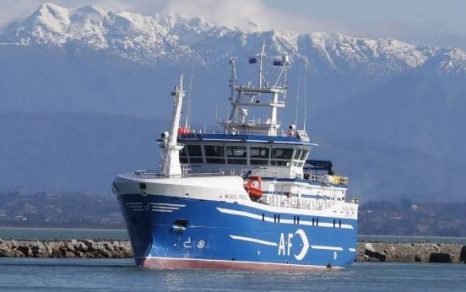

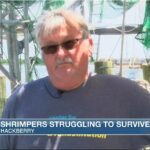
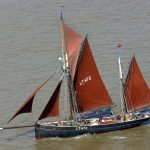
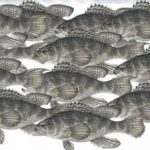
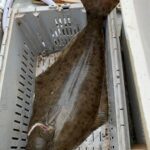
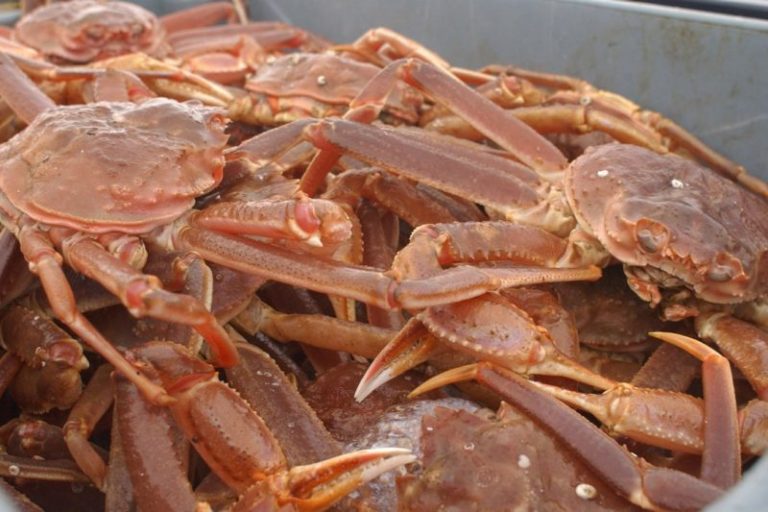
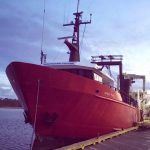
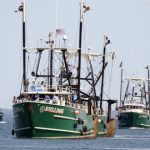
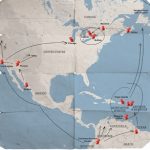
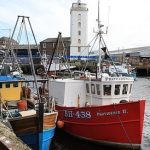
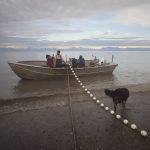



NMFS Seeks Public Comment for Proposed Rule to Require Turtle Excluder Device Use for Skimmer Trawls, Pusher-Head Trawls, and Wing Nets (Butterfly Trawls)
FisheriesNMFS is seeking comments on a newly proposed rule. The rule, if implemented, would require all skimmer trawls, pusher-head trawls, and wing nets (butterfly trawls) to use turtle excluder devices (TEDs) in their nets. A TED is a device that allows sea turtles to escape from trawl nets. The purpose of the proposed rule is to aid in the protection and recovery of listed sea turtle populations by reducing incidental bycatch and mortality of sea turtles in the southeastern U.S. shrimp fisheries. We have scheduled six public hearings in January 2017 to solicit public comment on the proposed rule. The dates, times, and locations of the hearings are as follows: Larose, LA – January 9, 2017, 4pm-6pm, Larose Regional Park and Civic Center, 307 East 5th Street, Larose, LA 70373. Gretna, LA – January 10, 2017, 12pm-2pm, Belle Chasse, LA – January 10, 2017, 4pm-6pm Biloxi, MS – January 11, 2017, 4pm-6pm, Bayou La Batre, AL – January 12, 2017, 10am-12pm Morehead City, NC – January 18, 2017, 12pm-2pm Read the bulletin here 09:33Share this post